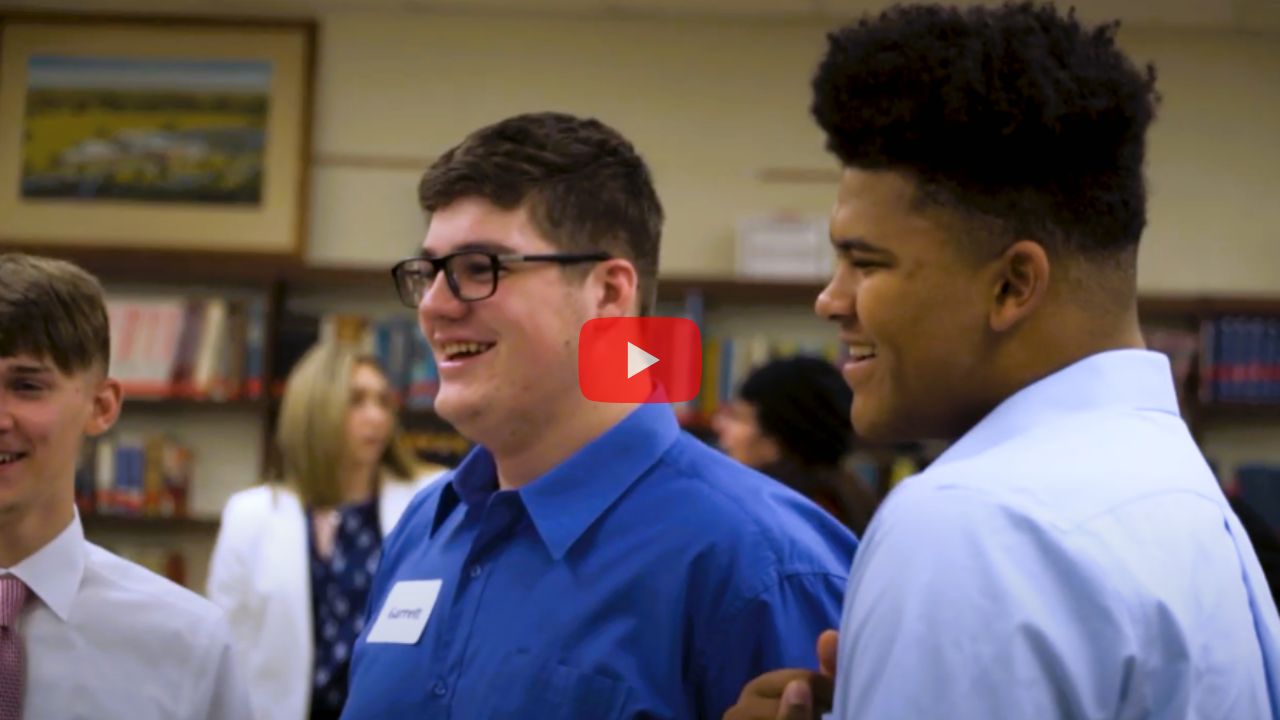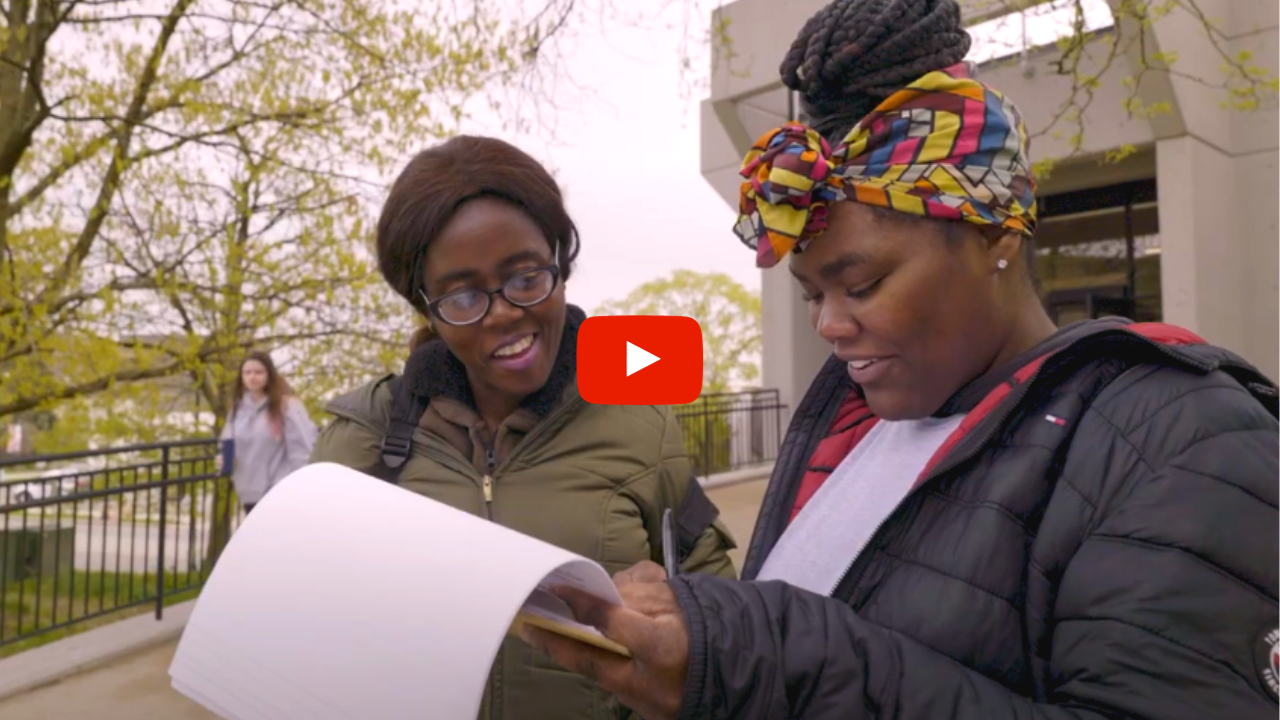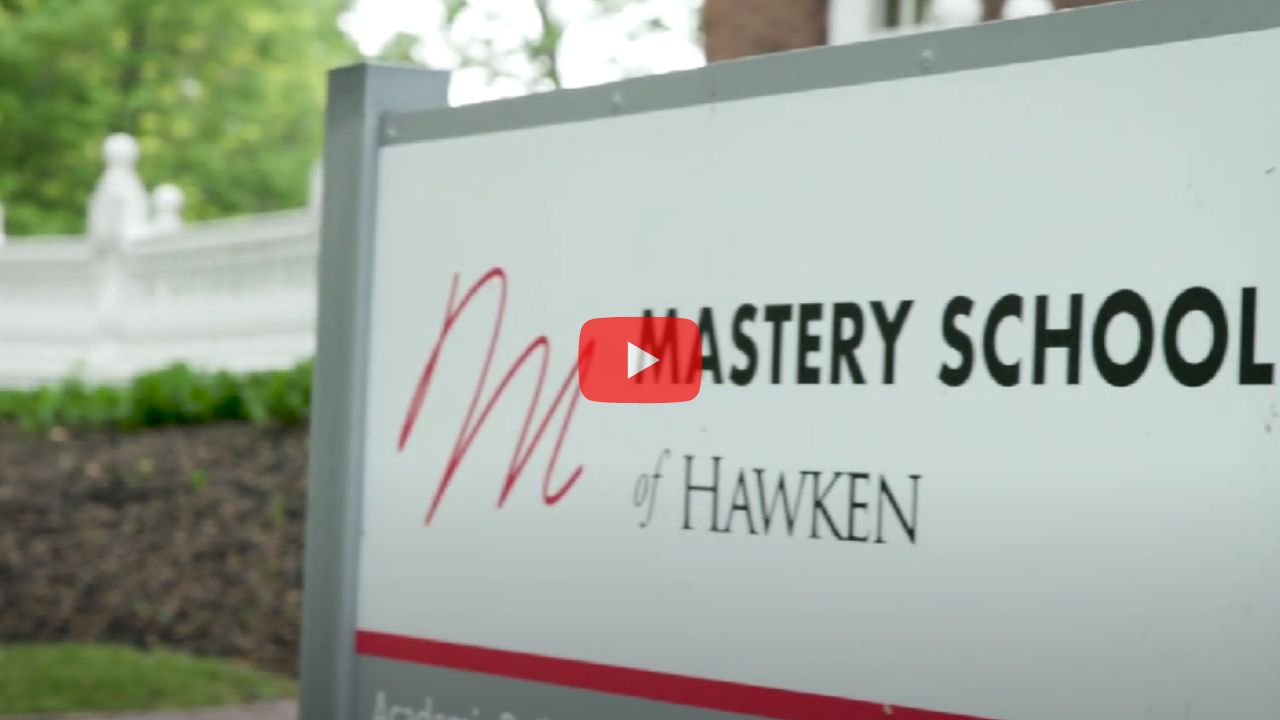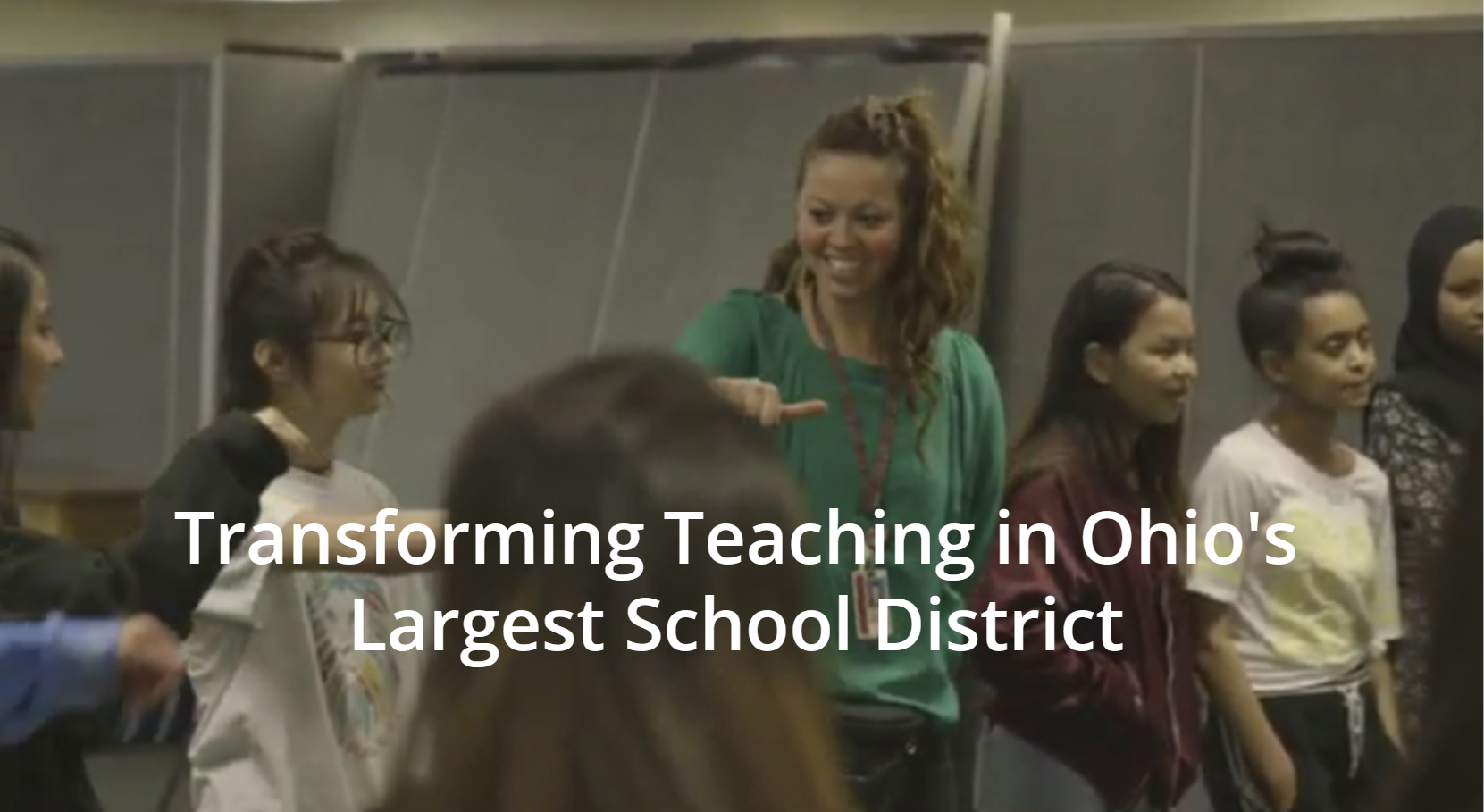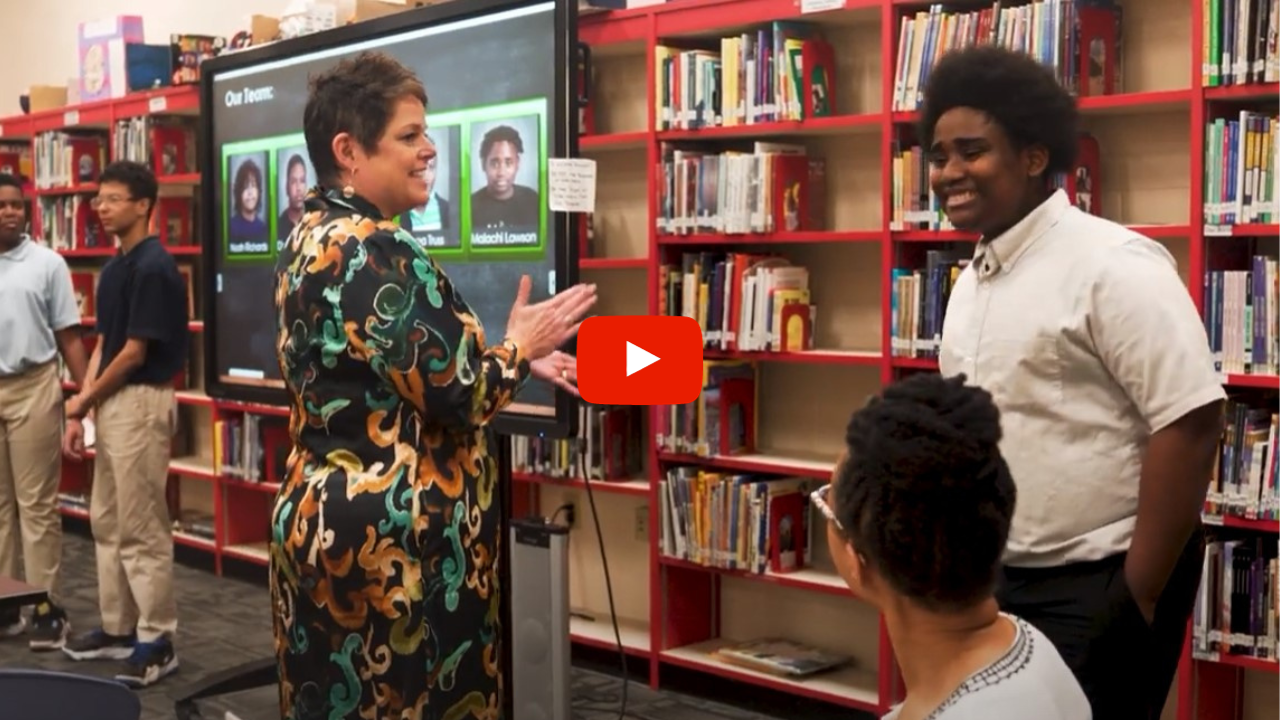In this episode, Doris defines entrepreneurship as turning ideas into successful realities. She explains why an entrepreneurship class is a powerful vehicle for mastering skills and why the current celebrity of the label “entrepreneurship” threatens the educational quality of entrepreneurship education.
Alison: So given your background, Doris, you were teaching math for a long time and now have developed this entrepreneurial course. I’m curious. Why entrepreneurship?
Doris: Well, there are a lot of reasons for using entrepreneurship as a vehicle for educational reform, which is really what I’m doing here. In no particular order, I’ll tell you some of the reasons.
So one is, starts with my definition of entrepreneurship. For me, entrepreneurship is about how to turn ideas into successful realities. So that’s pretty broad and pretty applicable.
If what I want to do is create a course where students are mastering skills, I wanted to create a course where they’re working on real problems that don’t have answers in the back of the book, and I wanted them to work on teams to solve problems. And actually have an academic course that requires them to learn how to work well on a team while solving real problems. Entrepreneurship’s the perfect vehicle for that.
So when every problem they’re confronted with has to do with how, in this crazily, ever-changing, weird new world we’re in, how to turn this idea into something that can be successful and scalable. All sorts of exciting, interesting, and challenging problems come up in the course of that sort of work. So it is a great vehicle.
It’s also really the epicenter of where a lot of the innovation is happening in the world and in this country, and the way in which technology has changed everything and impacts everything. Students must learn how to navigate with technology changing everything rapidly.
So I believe that truly, it is entrepreneurship and the entrepreneurial spirit and the entrepreneurial mindset that, done well, is the new . . . I’ve never thought of it this way until this moment, but I really know that this is how I think about it. That it’s really the place where that wonderful, it’s the new generation of the American spirit. It’s where we need to focus a lot of our attention with our . . . I’m not saying it well, but I think entrepreneurship is really . . .key to our, I think worldwide, but I think talking just about the United States, we’re risk takers, we’re a new country, we’re used to adapting to change. Entrepreneurship is really essential to our ongoing success, I believe. So for that reason I think entrepreneurship, as an academic topic, is important.
I could go on and on about the ways in which entrepreneurship itself, and the processes, and the mindset and the approaches are the most relevant kind of learning we could give our students right now, for the world they’re going into. I believe that with every fiber of my being.
I also believe when you talk about how do we reform education, how do we, when you’re sitting in schools and you’re recognizing, as many of us do, that we’re living with schools that were set up in a very different time, okay? They were set up at a time when what mattered most was that everybody learn very specific content. It isn’t that people don’t need to learn some stuff, some knowledge, some content. Of course.
That isn’t the only thing that matters. What matters as much, if not more, I believe more, is the development of these skills. Creative problem solving, critical thinking, communications, collaboration. That matters more than anything. You can’t learn those things well without learning also knowledge.
Anyway, so when thinking about where do we start, what kind of course do I start with to build a proof of concept here for how this can be done very differently, this thing called school.
I love entrepreneurship for all the reasons I talked about earlier, but I also felt, and this was, boy, four, over four years ago, right, that using real businesses to provide the problems, brings the real world into the class, gets the students into the real world. It also is a fabulous way for students to learn by interacting with their community.
So it is not only experiential, it is by definition community based. What are you doing right now? You’re looking for businesses, right?
Alison: Right.
Doris: We’re talking to businesses about will you come and give us a problem for our students next semester. They’re local businesses, it gets our students into Cleveland. So it involves the community in a way that’s really . . . Beyond even the businesses, parents are involved, community members are involved where it makes sense in supporting the work.
The students, the conversation about the matter at hand, the problem that’s being worked on, isn’t siloed in the walls of a 12th-grade classroom. You can’t solve these problems without getting out into the community, without understanding what resources are available and how to get at them.
I love that part of it and I think to really build the educational models we need, the schools that we need for our country and our world, to be successful, we have to open those doors of those schools.
Education has to look entirely differently, including that it has to be really involved with the community. So entrepreneurship, that’s another huge reason I wanted to do this using entrepreneurship education.
Another reason is, if you start – four years ago, I knew that what I was going to be building, you’ve heard me use this, I don’t feel like these things we do are radical. I don’t feel like a radical person. But I keep getting told that I am, so I’m starting to believe it. You know, after a while, you get insecure because of what others tell you.
I’ve been in schools for years, and I knew that if I started by saying, “Hey, I want to start a math class or I want to start a science class or I want to start a history class,” that it’s already very difficult to do something like this in an existing system, no matter how great the school, no matter how progressive, no matter how free-thinking.
At Hawken, as you know, we’re very lucky. It’s an incredible school in terms of being brave and smart about innovation and taking risks. Even with that, you’re building something really radical in an existing system, and building an entrepreneurship course was at least, in its own little subject area.
So I felt a little more flexibility to try out things that were pretty new and not have to worry so much about very specific disciplines. It’s trans-disciplinary. It’s not even cross-disciplinary or inter-disciplinary, it’s trans-disciplinary.
To build something very, very different, where what I most wanted to focus on is how do we structure this in such a way that we’re using real problems and these students are really learning these skills. I didn’t want to be worried about specific content. So . . .
Alison: Sure. Having them read specific books or having to meet specific standards.
Doris: Right, right. What’s been really interesting is . . . Two things I wanted to say about that. One is that the first couple of years, that was really helpful. As it’s developed, it’s very academic actually, and there, as we talked about. And now that it is called “Entrepreneurship Course,” it actually carries baggage with it that I’m not that happy about because – well, you know this.
People hear, “Oh, it’s an entrepreneurship course, you just do pitches. I get it.” It’s so misleading. It’s not that. It’s very academic and it’s very rigorous, and they’re learning a lot of knowledge, of content. So that’s been interesting.
But the other thing that’s been interesting is that of course all this stuff we’ve developed is now being applied by all kind of teachers of all kinds of disciplines. So there are science teachers teaching science classes using this.
Where does entrepreneurship come in? Well, I would say that it has an entrepreneurial approach, but it’s a single discipline, these classes, some of them.
Alison: Well, I think it’s interesting that at the heart of some of this, you talked about really the entrepreneurial process of bringing ideas into successful realities is very much aligned with the creative process and all of this that, when applied in these different subject matters or contexts, of course it’s relevant.
Really, it comes down to one of, and I think we share this belief, that it’s one of the best ways to foster skills, creative problem solving, critical thinking, collaboration, communication, citizenship, all of it, that when put in the lens of education reform, really makes incredible sense and can ultimately empower kids, the next generation, to go out there and enter the world that needs these types of thinkers, and people with sort of a mindset.
Doris: It’s problem solving at the end of the day, right?
Alison: Yeah.
Doris: It’s problem solving.
Alison: Exactly right.


